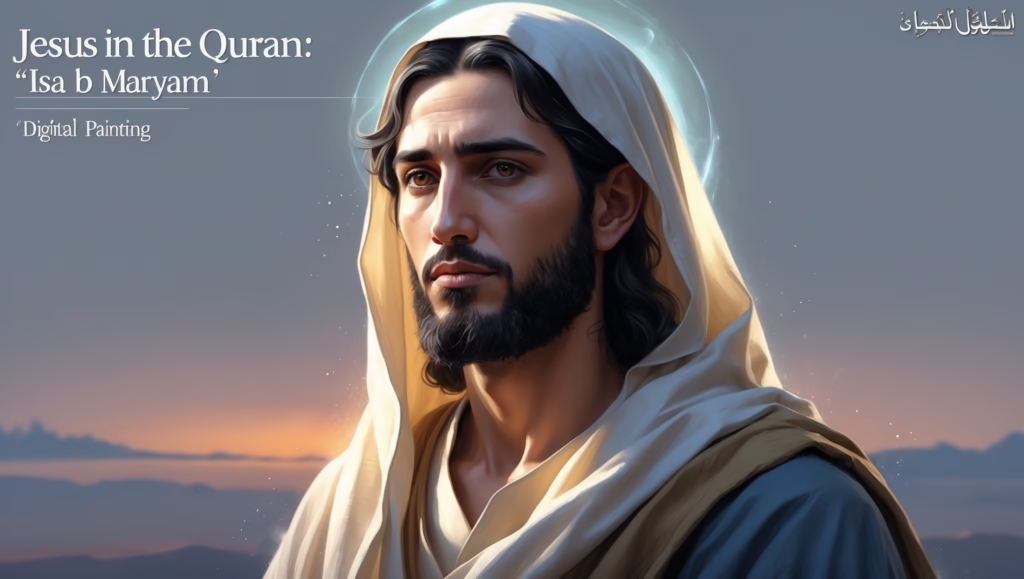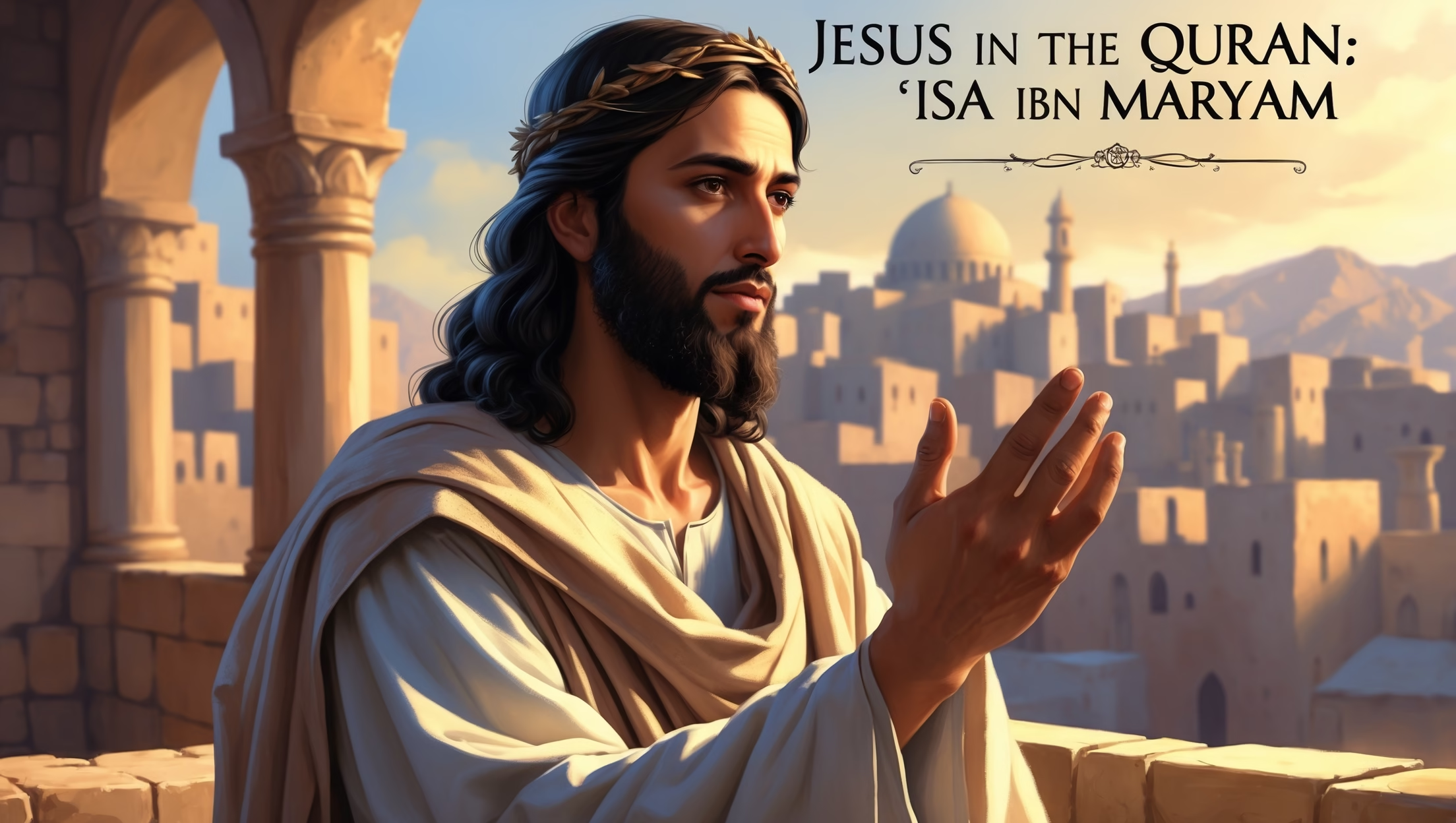Islam’s Revered Yet Reimagined Messiah
Jesus, known in Arabic as ‘Isa ibn Maryam (“Jesus, son of Mary”), occupies a unique position in Islamic theology. Unlike Christianity, which emphasizes His dual nature as fully God and fully human, Islam affirms His prophethood while denying divinity. Yet, Muslims honor Him as a miracle-bearing messenger, a moral exemplar, and a pivotal figure in eschatology. Understanding this perspective fosters interfaith dialogue and enriches the study of Jesus’ global influence.

Biblical and Quranic Foundations
In the Quran, Jesus appears in numerous passages, including Surah Al-Imran (3:45–51), Surah Maryam (19:16–36), and Surah An-Nisa (4:157–159). Key affirmations include:
- Virgin Birth: Miraculously born to Mary without a human father.
- Miracles: Speaking as an infant, healing the blind and lepers, raising the dead (Quran 3:49).
- Prophetic Role: Sent to the Children of Israel to guide them to God.
Islamic texts emphasize obedience to God, moral integrity, and eschatological significance while avoiding claims of divine sonship.
Key Contrasts with Christianity
| Feature | Christianity | Islam |
| Crucifixion | Central event of atonement | Denied; Jesus was not crucified (4:157) |
| Divine Status | Son of God, fully divine | Prophet, fully human |
| Return | Second Coming as King and Judge | End-times judge and restorer of justice |
| Mother | Virgin Mary, honored | Virgin Mary (Maryam), miraculous birth affirmed |
| Scripture & Teaching | Gospels as canonical record | Quran as divine revelation, Jesus as prophet |
Crucifixion in the Quran:
The Quran explicitly denies that Jesus was killed or crucified, stating that it was made to appear so:
“And they did not kill him, nor did they crucify him; but it was made to appear to them so” (Surah 4:157).
This theological divergence preserves Jesus’ sinlessness in Islam and frames His ascension as a sign of divine protection.
Jesus’ Mission in Islamic Thought
- Moral and Spiritual Guidance
- Jesus exemplifies piety, compassion, and submission to God (Islam = submission).
- He confirms the message of earlier prophets and calls people back to ethical monotheism.
- Jesus exemplifies piety, compassion, and submission to God (Islam = submission).
- Miracle Worker
- Healing, raising the dead, and feeding multitudes serve as signs (ayat) of God’s power, not indicators of His divinity.
- Miracles reinforce faith in God, not self-exaltation.
- Healing, raising the dead, and feeding multitudes serve as signs (ayat) of God’s power, not indicators of His divinity.
- Eschatological Role
- Hadith literature affirms Jesus’ future return to defeat the false messiah (Al-Masih ad-Dajjal) and restore justice.
- He will rule in accordance with Shariah law, bridging cosmic history and the final judgment.
- Hadith literature affirms Jesus’ future return to defeat the false messiah (Al-Masih ad-Dajjal) and restore justice.
Shared Ground Between Christians and Muslims
Despite theological differences, points of convergence create opportunities for dialogue:
- Reverence for Mary: Both traditions honor Mary as pure and chosen, though Islam emphasizes her modesty and submission.
- Ethical Teachings: Compassion, humility, and care for the marginalized appear in both Jesus’ teachings and Islamic principles.
- Eschatology: Both faiths anticipate a return of Christ as part of God’s plan for justice.
Interfaith conversations often begin here, using Mary or moral teachings as common touchstones.
Implications for Understanding Jesus Globally
- Religious Pluralism:
Recognizing Jesus’ role in Islam highlights His universal significance beyond Christian dogma. - Comparative Theology:
Studying Islamic perspectives challenges believers to differentiate Christological essentials from cultural or doctrinal accretions. - Dialogue and Cooperation:
Shared respect for the prophet can foster humanitarian collaboration, especially around education, ethics, and social justice.
Conclusion
‘Isa ibn Maryam demonstrates the complexity and adaptability of Jesus’ identity across religious contexts. While Christianity and Islam diverge on crucifixion and divinity, both affirm His moral authority, miraculous acts, and eschatological significance. Recognizing these distinctions enriches interfaith understanding, encourages respectful dialogue, and underscores the global and transcultural impact of Jesus as a figure who continues to inspire billions across time and geography.
By examining Jesus through the Quranic lens, we encounter a Messiah both familiar and profoundly different—a reminder that His story transcends a single faith tradition while calling all toward ethical living, divine obedience, and hope for ultimate justice.








